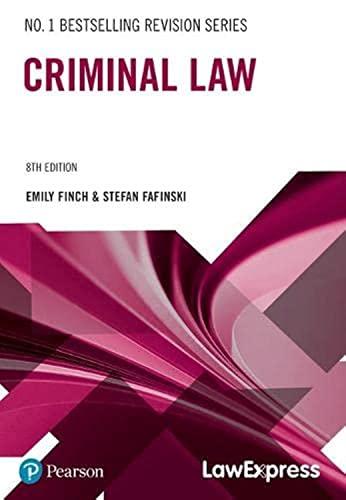Question
You are a legal advisor in an Australian government department. The Minister heading the department is concerned because a foreign representative recently told the Minister
You are a legal advisor in an Australian government department. The Minister heading the department is concerned because a foreign representative recently told the Minister at an international gathering of foreign officials that even if Australia did not become a party to a treaty currently being negotiated, Australia might nonetheless be bound by rules enshrined in the treaty. The Minister tells you that they have a vague recollection of studying the Law of Treaties at university and that there was a treaty on treaties that Australia was a party to. The Minister recalls that this treaty on treaties provided that "a treaty does not create either obligations or rights for a third State without its consent".
The Minister asks for a detailed explanation of how, if at all, Australia might be bound under international law by a rule set out in a treaty to which Australia is not a party, and how Australia might avoid being bound by such an international legal obligation. The Minister also has a vague recollection of things called jus cogens and erga omnes obligations and asks whether these might be relevant. Your explanation should include references to relevant judicial decisions and relevant secondary sources on international law.
Step by Step Solution
There are 3 Steps involved in it
Step: 1

Get Instant Access to Expert-Tailored Solutions
See step-by-step solutions with expert insights and AI powered tools for academic success
Step: 2

Step: 3

Ace Your Homework with AI
Get the answers you need in no time with our AI-driven, step-by-step assistance
Get Started


